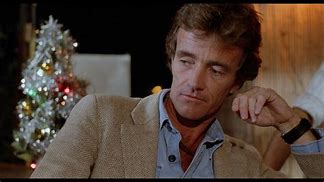PHENOMENALITY: *uncanny*
MYTHICITY: *fair*
FRYEAN MYTHOS: *drama*
CAMPBELLIAN FUNCTION: *psychological*
After the success of 1980's THE BOOGIE MAN, writer-director Ulli Lommel and his wife/muse Suzanna Love began investing considerable energies into producing commercial horror/sf movies. While scouting locations for a potential BOOGIE MAN sequel, Lommel became fascinated with the former London Bridge, which in 1971 had been disassembled and rebuilt across the Colorado River in Arizona, so he and John T. March collaborated on the script for OLIVIA, with Love in the titular role. According to a recent packager, Vinegar Syndrome, OLIVIA did receive some limited screenings as early as 1981 though most references claim it was delayed until 1983.
Whereas Lommel's script for BOOGIE MAN was relatively layered, OLIVIA's scenario wanders about too much to have much impact. The movie's been called a low-rent VERTIGO, but it has more in common with 1971's HANDS OF THE RIPPER. I don't suggest that Lommel copied that film; only that he pursued a similar strategy in using a "repetition-compulsion" scenario to motivate a female psycho-killer. In both RIPPER and OLIVIA, a female child sees her mother murdered by a killer, and as an adult she becomes a psycho-killer, implicitly identifying with the murderer's power to take life, rather than the victim who suffers and dies.
Olivia (Love) vacillates a bit more than the character in RIPPER, possibly because before dying, Olivia's mother gives her ambivalent advice in the form of the "Rapunzel" fairy tale, claiming that the tale's moral is that princesses will always be rescued by noble princes. Unfortunately, Olivia's mother is a prostitute, and one of her johns asks her to handcuff him for sadomasochistic play. The mother makes the mistake of releasing the john too soon, and he kills her, afterward concealing the crime by tossing the mother's body off London Bridge into the Thames River. Olivia witnesses all of these things but it's not clear if the killer is ever apprehended. Fifteen years later, Olivia has married a conservative man, Richard, who refuses to let her work outside the house (thus keeping her in a "prison tower" a la Rapunzel). Olivia hears her mother's voice and ends up dressing like a prostitute. She entices a customer to take her to his home and replays the sadomasochistic scenario, but with the more desirable ending where she kills the john.
But victims of repetition-compulsion can never find complete satisfaction. Olivia goes out again, and this time she makes a more romantic connection with architect Michael (Robert Walker Jr). He is in London because he's to be involved in the project to disassemble London Bridge and reconstruct it in Arizona. As Olivia continues to see Michael, Richard finds out and confronts the two of them on the aforesaid bridge. The two men scuffle. Richard falls into the Thames, apparently dying in the waters, though no body is found.
Somehow Michael loses track of Olivia, but after he relocates to Arizona after finishing the reconstruction of the bridge there, Olivia turns up there as well. This is where the VERTIGO reference applies: Michael meets Olivia, but she pretends to be an American tour-guide named Jenny. The two strike up a romance once more, but soon it's time for another "return of the repressed," as Bad Richard, who's been off the grid biding his time, makes his way to Olivia's home in Arizona. He kills Michael, disposing of his body off London Bridge as the john did Olivia's mother. He bullies Olivia into compliance, but she waits until he lowers his guard, at which point she murders him with a butcher-knife in the movie's best scene. After a long sequence in which Olivia puts Richard's corpse in a trunk and dumps it in the same river, the film simply ends.
OLIVIA is not as well-constructed a Freudian paradigm compared to HANDS OF THE RIPPER. We know nothing about Olivia's father, so we don't know if Child-Olivia sees the murder of her mother as a fatal version of the "primal scene." The fact that she marries an authoritarian man, though, suggests some complicity in the idea that women should be deferential to men, lest they pay the price for independence by being slain out of hand. The script is a little too lackadaisical to bring forth this sort of symbolism, but arguably similar material appeared a little later when Lommel and his wife collaborated on the script for 1983's DEVONSVILLE TERROR.



No comments:
Post a Comment